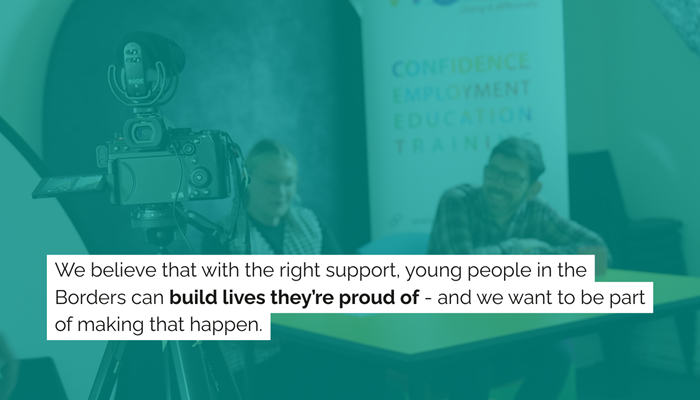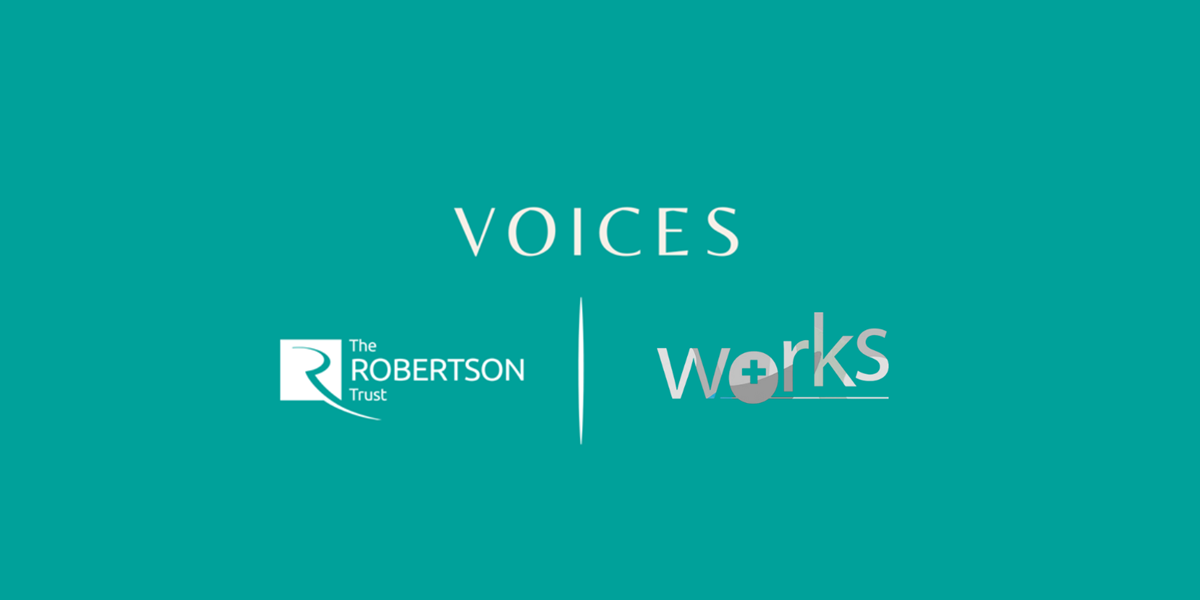"Positive results are only meaningful if they last."
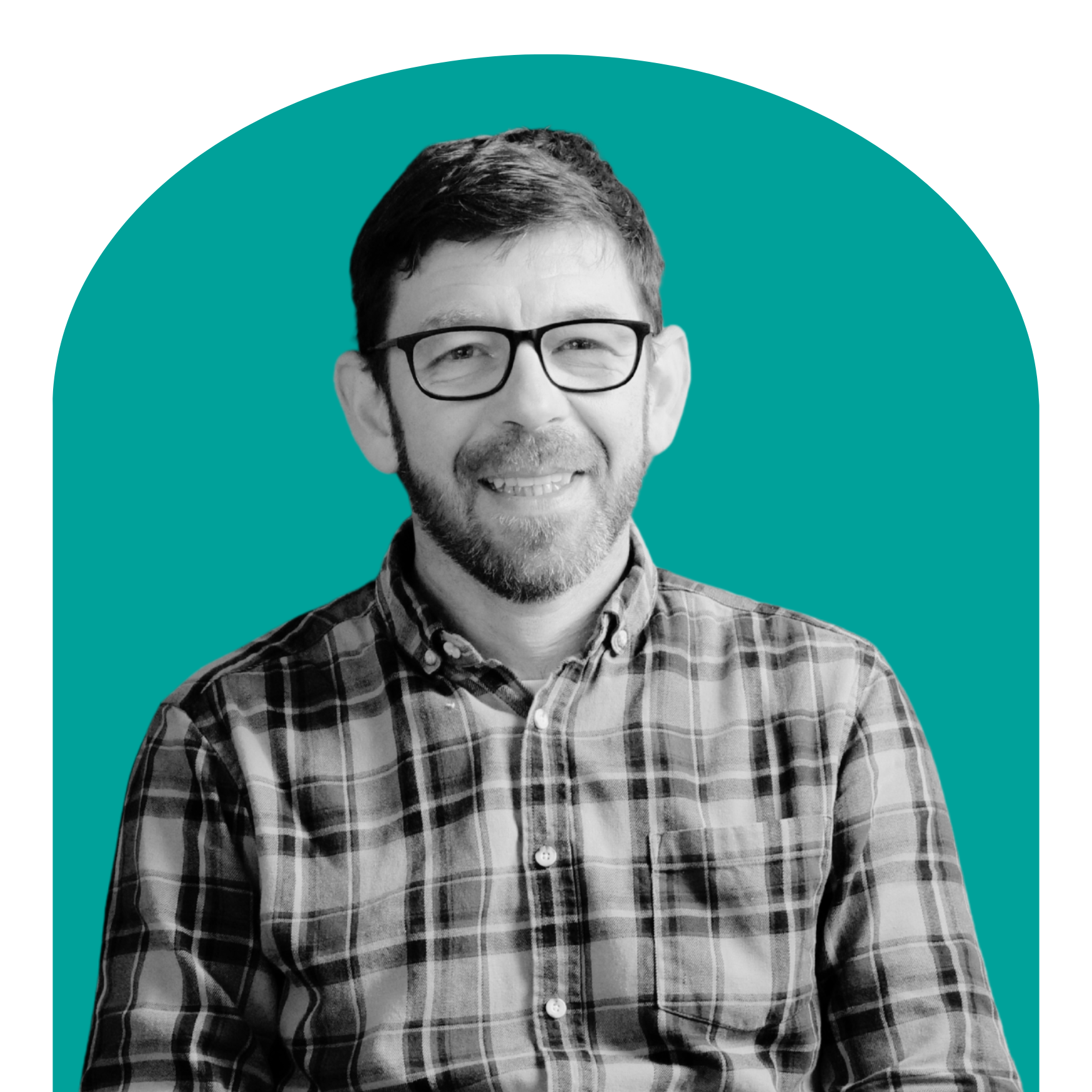
What is Works+ working to achieve?
At Works+, we support young people in the Scottish Borders who are not in education, employment or training to build the confidence, skills, and support networks they need to move forward with their lives.
Many of the young people we work with face significant barriers - such as poor mental health, social isolation and low aspirations - often made worse by living in rural poverty.
Our goal is to offer practical, person-centred support that helps young people believe in themselves, feel connected to their communities, and take meaningful steps into employment, education or training. Our strapline is doing it differently, and we aim to tackle not just job readiness but the wider, often hidden, barriers that stand in the way - including trauma, poverty, lack of transport, and the digital divide. Getting a job is often the easy part. It’s working through everything else – unpicking the knots - that takes time and care.
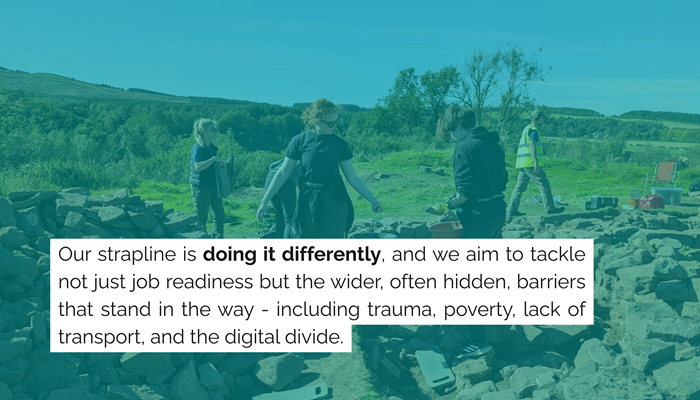
Where are you focusing your support right now?
We’re currently focusing on delivering tailored one-to-one support, employability programmes, and confidence-building activities for young people aged 16–24 across the Scottish Borders.
Because the area is so rural, there are real challenges with access to services, transport, and job opportunities. That’s why we work closely with local employers, schools and support services to offer something meaningful and joined-up. We’re also exploring ways to support earlier intervention - working with those who are beginning to disengage from school or college before the issues become long-term.
Our eight-week employability course offers practical training such as CV writing, interview skills, and accredited courses like first aid, food hygiene, and personal money management. We also spend time exploring the world of work through employer visits and career conversations, opening up the labour market in a fun and accessible way. For those not quite ready for group work, we offer one-to-one preparation to help them build confidence. This has been particularly important for those whose mental health suffered worst during COVID - many of whom are only now just entering back into society.
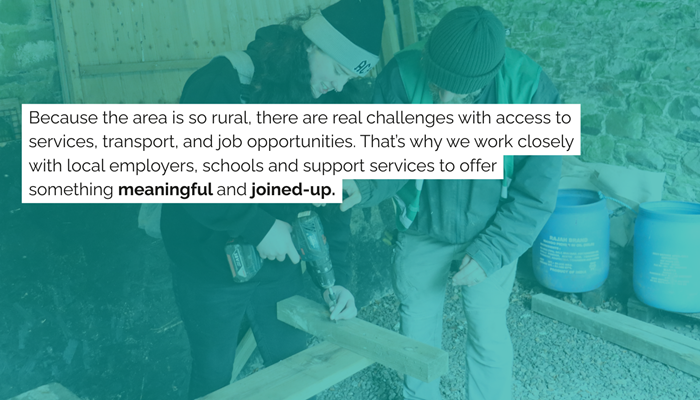
How do poverty and trauma figure in your work?
Poverty and trauma are central to the issues young people face here. Many have lived through difficult circumstances - family breakdowns, adverse childhood experiences, poor mental health, or prolonged unemployment. Rural poverty often makes things worse, increasing feelings of isolation and reducing access to services.
Visitors to the Borders see beautiful hills and countryside, but they don’t always see the deprivation that exists here. Some areas in the Borders are among the most deprived in the country, and yet people remain blasé about the lack of investment and opportunity.
Public transport can be a major barrier. For example, someone travelling from Cockburnspath to a Jobcentre appointment in Eyemouth might only have one bus a week. That level of isolation makes it incredibly difficult to engage with services or employment.
Our trauma-informed approach focuses on creating a safe, respectful environment where young people feel heard and empowered. We take time to build trusted relationships, meet people where they are, and unpick the knots one thread at a time. For us, it’s not just about the outcome - it’s about helping young people believe in their own potential again.
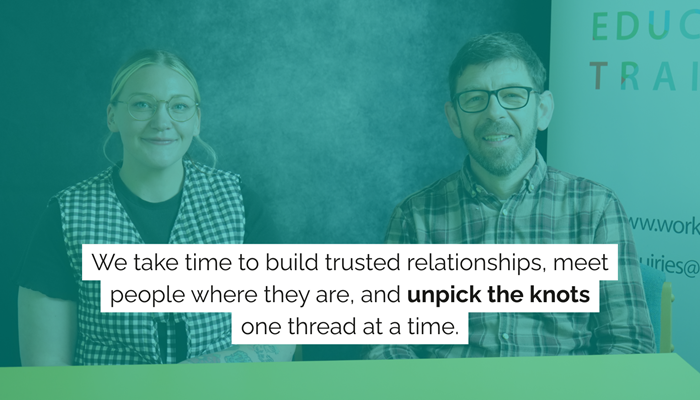
What elements of your service are working well?
Our eight-week programme is working really well - we’re proud to have a success rate of over 80%, with most young people moving on to a positive destination afterwards. But we don’t stop there. We offer at least 18 months of aftercare, checking in regularly to make sure things are still going well. That way, if bumps in the road do come up, we can support them before things reach crisis point.
This long-term support helps sustain outcomes. Positive results are only meaningful if they last. Our approach is also deeply person-centred. We don’t just help people apply for any job - we spend time finding out what they actually want to do. That level of care and attention is only possible because we’re lucky enough to have the time to build proper relationships—something many other services don’t have.
We’re also seeing stronger engagement through word of mouth and self-referrals, which tells us that our work is building trust across the community.
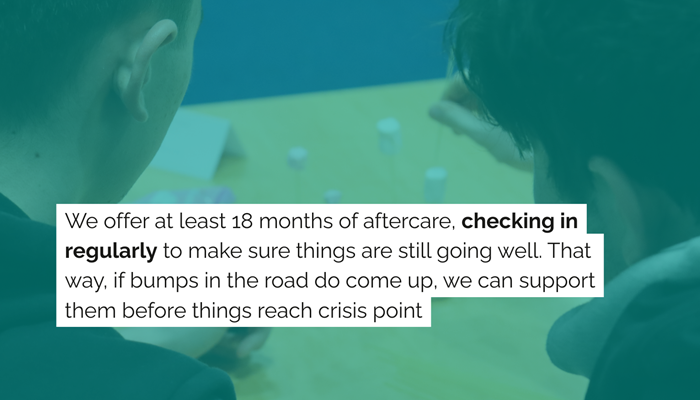
How can funders support your work?
Funders can support our work by offering flexible, long-term funding - particularly core funding. That kind of support lets us retain skilled staff, build relationships with young people, and adapt to changing needs. Short-term, target-driven funding doesn’t give us the stability to plan or the flexibility to respond to individual needs.
We’d love to see more support for innovation, mental health services and rural transport solutions. A five-year funding cycle would be fantastic, but a 10-year pot? That would be transformative. Imagine what the third sector could do with that kind of security.
Too often, charities have to accept uncertainty around funding as normal. I remember when Works+ turned one - we hosted an event with 100 people in the room, loads of energy and positivity, but I knew in my head we only had enough funding left to run for another two weeks. That’s the reality. It’s terrifying - not just for me as someone with a mortgage and family - but for the young people who rely on our service. And that’s what really matters.
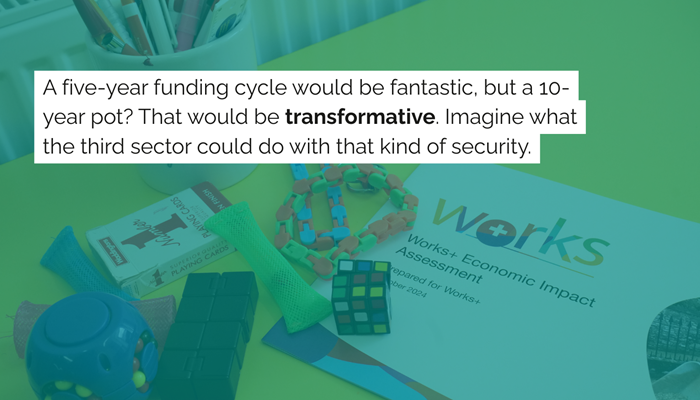
What changes would you like to see in your area of focus during the next five years?
In the next five years, we want to see more place-based support for young people in rural areas, with better integration of mental health and employability services. We’re seeing a sharp rise in the number of young people struggling with anxiety - often a legacy of the pandemic - and the long waiting lists for specialist support are just creating more barriers. People need help now.
We’d also like to see more investment in youth work, early intervention, and creative, realistic pathways into employment - things that make young people feel they can aspire to something better.
Transport and digital exclusion remain big barriers in the Borders. The digital divide is vast. Many of our young people say their goal is to get a job and save up enough to leave the area - because they don’t see a future for themselves here. We want to help change that and create opportunities that give people a reason to stay.
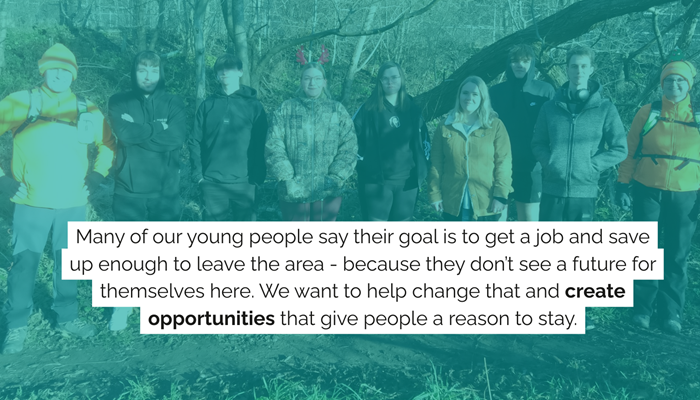
What long-term system changes would best address the issues?
We need systems that focus on prevention and early intervention, and that put trauma-informed, person-centred approaches at the heart of everything. Youth and employability services should be designed with wellbeing in mind - not just work readiness.
There also needs to be much closer collaboration between statutory services, schools, third sector organisations, and employers. That’s not always easy, especially in rural areas where many employers are sole traders. Asking them to engage with programmes like ours is a big ask- it takes time. We understand that. But we’d love to find ways to make those connections easier, to help “oil the wheels.”
Above all, policies and funding need to reflect the unique challenges of rural poverty - and help young people thrive in the communities they’re from, not feel they have to leave to find opportunity.
We believe that with the right support, young people in the Borders can build lives they’re proud of - and we want to be part of making that happen.
